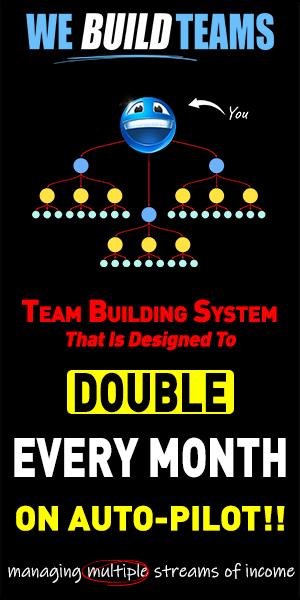Network marketing, often seen as a competitive and fast-paced business model, offers unique opportunities for personal and professional growth. However, many marketers struggle to find their niche in a crowded marketplace. This blog post delves into seven commonly searched yet underexplored topics in network marketing that can help both new and experienced marketers enhance their strategies and achieve lasting success.
1. Building Genuine Relationships
At its core, network marketing is about relationships. While many marketers focus on sales tactics and techniques, genuine connection often takes a back seat.
The Importance of Trust: Building trust is crucial in network marketing. When prospects feel that they are valued beyond just their potential to make a purchase, they are more likely to engage and stay loyal. Techniques such as active listening, empathy, and consistent communication can foster stronger relationships.
Actionable Strategies: Share personal stories, ask open-ended questions, and express gratitude. These practices help in establishing a rapport that can lead to long-term relationships.
2. Mindset and Personal Development
The psychological aspects of network marketing are frequently overlooked. Developing a growth mindset is critical for success.
Mindset Matters: A positive attitude and resilience in the face of challenges can make all the difference. Research indicates that individuals with a growth mindset are more likely to embrace challenges and persist through difficulties.
Personal Development Tools: Resources like books on emotional intelligence, mindfulness practices, and mentorship programs can aid in personal growth. By prioritizing mindset, marketers can enhance their overall effectiveness and satisfaction in their roles.
3. Sustainable Practices in Network Marketing
As consumers become increasingly environmentally conscious, the demand for sustainable business practices grows.
Eco-Friendly Strategies: Network marketers can focus on using sustainable materials for promotional materials, choosing environmentally friendly products, and advocating for social responsibility.
Benefits of Sustainability: Implementing green practices not only attracts eco-conscious customers but also enhances brand loyalty and reputation. For example, sharing your commitment to sustainability through social media can resonate with your audience and encourage similar values.
4. Compliance and Ethical Marketing
Navigating compliance and ethical considerations is often complex but essential for long-term success in network marketing.
Understanding Regulations: Familiarize yourself with local and international laws regarding advertising and sales practices. This knowledge is vital to avoid pitfalls that could damage your reputation or business.
Promoting Ethical Practices: Ethical marketing strategies include transparency about product claims, avoiding high-pressure sales tactics, and ensuring that all claims are substantiated. By establishing a reputation for integrity, marketers can build trust and credibility in the market.
5. Leveraging Technology and Automation
In today’s digital landscape, embracing technology can streamline processes and improve efficiency.
Automation Tools: Many network marketers overlook the potential of automation tools that can handle email marketing, social media scheduling, and customer relationship management (CRM). Utilizing platforms like HubSpot, Mailchimp, or Hootsuite can save time and allow marketers to focus on building relationships.
Data Analytics: Understanding and leveraging data analytics can provide valuable insights into customer behavior and preferences. By analyzing this data, marketers can tailor their approaches to better meet the needs of their audience.
6. Diversity and Inclusion
Creating diverse and inclusive marketing environments is not just a moral obligation; it can enhance business performance.
Benefits of Diversity: Diverse teams bring varied perspectives that can foster creativity and innovation. Research shows that companies with diverse teams are more likely to outperform their peers.
Implementing Inclusive Practices: Marketers can implement practices that promote inclusivity, such as hosting diverse training sessions and encouraging contributions from all team members. Highlighting diverse voices in marketing campaigns can also resonate with a broader audience.
7. Analyzing Common Pitfalls
Identifying and addressing common mistakes can significantly improve a marketer’s success.
Common Mistakes: New marketers often fall into traps such as neglecting personal branding, focusing solely on recruitment, or failing to follow up with prospects.
Preventative Strategies: Creating a checklist of best practices and regularly reviewing personal goals can help marketers stay on track. Seeking mentorship or participating in training sessions can provide guidance to avoid these pitfalls.
Conclusion
In a constantly evolving landscape, focusing on these underexplored topics can provide network marketers with a significant advantage. By prioritizing genuine relationships, fostering a growth mindset, implementing sustainable practices, navigating compliance, leveraging technology, promoting diversity, and learning from common mistakes, marketers can enhance their effectiveness and drive long-term success.
As you develop your network marketing strategy, consider these topics as a way to stand out in a competitive field. By addressing these areas, you’ll not only improve your business but also contribute to a more ethical and sustainable industry.
